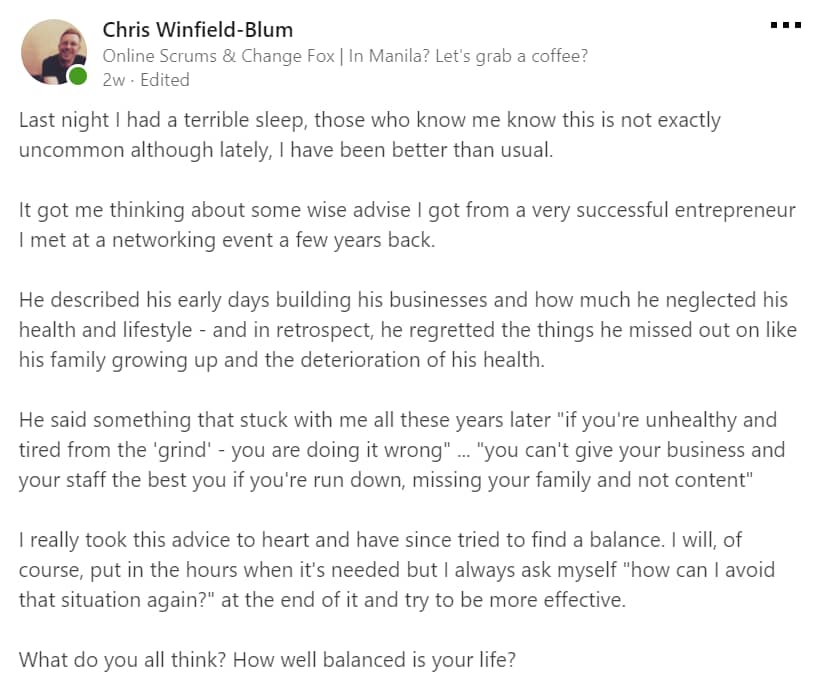Organisational leaders who preach and work long working hours but end up sick every other week are doing themselves, their teams and their organisation a disservice.
But before I get into this topic, I get that developing a business idea and growing your organisation to success is hard work, but over the past few years I have witnessed the work ethic of business owners and especially the past few weeks I have engaged with a number of organisational leaders within the startup space, and it is amazing how many of them talk about working 16-20 hours a day in one breath and then talk about being rundown, hospitalised or generally unwell the next and fail to recognise the direct relationship between these two topics.
In fact, I have met in the past two months, three startup founders who have worked their way into a hospital bed recently (I won’t name & shame, you know who you are!) and I can assure you, their businesses did not grow whilst they were laid up in bed recovering from working inhuman hours the weeks before.
Even myself, about a week ago I had a terrible nights sleep and it got me thinking at the time about work vs life balance and the influence it has on not only your effectiveness as an organisational leader but also on your own health. See my post below;

When I hear people “bragging” about how many hours they have worked I always think to myself, “what are you happy about here? Do you think that working longer hours says something positive about you?” and in my recent interactions with startup leaders I have challenged people with questions about how scalable the current scenario is for their business and their personal lives.
How much growth can you expect in your business when you, as the CEO or manager, are having to work so many hours? What are you, as a leader, doing to resolve these clearly inefficient and ineffective business practices?
I’m sure there’s a certain element of leaders feeling that it makes them feel needed and important to those around them, but in truth, it is a curse on the organisation. It says we do not need to innovate, we do not need to think outside of the box and get better, and probably it says that personal health and life balance is not important to the leadership within the organisation. Now can you imagine what your team members would think of this? What kind of organisation culture are you developing?
I get it, I get it, I can almost hear the eye rolling as some of you read this, really, I get it! Sometimes you need to get in, get your hands dirty and handle tough situations to ensure the best outcomes for your customers and staff BUT again is this approach scalable on an ongoing basis? I have pulled all-nighters because something horrible went wrong with a project. I have gotten into the trenches with my teams to help however I could. But these are absolutely exceptions to the rule, and I can assure you that as a team we would reflect and agree on how to correct the decisions, behaviours and actions that led to the problem.
So I am happy that you’ve stuck with me this long, at this point, I challenge you, as leaders in your organisations, to ask the tough questions of yourself and your team (but it absolutely starts with you!), to ensure that you are working effectively and have a personal life at the same time, because in the end if you work your life away, doing long hours and I am sure, achieving some measure of success, but never actually LIVE YOUR LIFE, then what is the point really?
What do you think?

